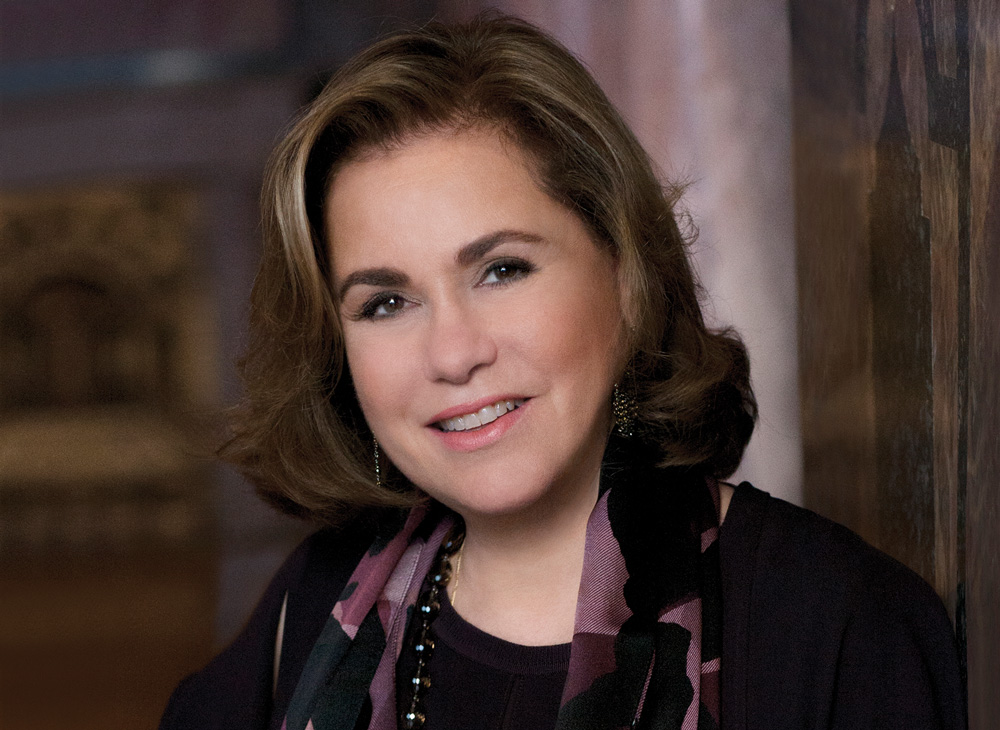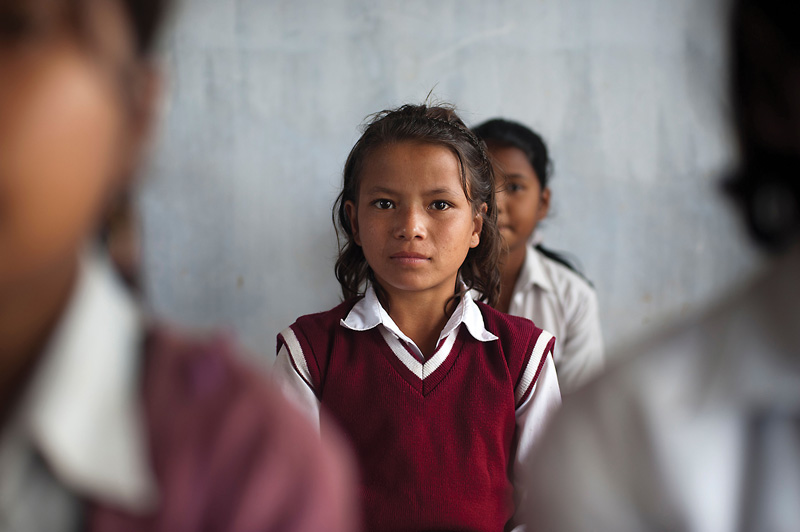


It is sending your message ...

I intend to continue pursuing very actively, alongside my duties and responsibilities as the wife of a Head of State, the series of engagements that have been mine for over 20 years in three principal areas: learning difficulties; micro-credit and social entrepreneurship; and respect for the rights and dignity of girls and young women, and particularly their right to quality education. These are convergent fields because what is important, within each of these priorities, is to protect the vulnerable.
The year 2016 saw the consecration of a commitment that is particularly dear to me, because it also affects me personally, as one of my children is a sufferer: namely learning difficulties. In January 2016, I organized the first international forum on this theme, and it was a striking success. Afterwards I decided to pursue the dynamic that the forum initiated, through the Grand Duke and Grand Duchess Foundation, over which I preside. The Foundation is in the process of establishing an exchange and information platform on the Internet to enable parents, teachers, and professionals to share their experiences, and thus improve the effectiveness of the assistance provided to children with learning difficulties.
Micro-finance always has been and will remain central to my priorities. It offers a way out of the vicious circle of poverty and helps to give people back their dignity, as they obtain not only credit, but particularly confidence and support from the lending institution.
In most cases, this type of support gives rise to a desire for education which, in turn, creates a virtuous circle. The beneficiaries of micro-credit are the first to be convinced of the importance of sending their children to school and university and of their own need for training, for example, to learn to write and count, whatever their age. Micro-finance helps people to stand on their own two feet. In so doing, it is a formidable instrument for peace. It is also a very effective means of integration, including in Luxembourg, my own country, where social cohesion is undoubtedly more important than elsewhere due to the high proportion of foreign nationals!
The Grand Duke and Grand Duchess Foundation plays an active role in the development of social entrepreneurship and in offering vulnerable, and sometimes marginalized, people the possibility of creating a business. The Foundation is one of the founder members, alongside the Government of Luxembourg, of the first incubator for social entrepreneurs, 6zero1. Through the training provided, along with individualized support, this initiative will serve as a trampoline for social enterprises. By means of this initiative, the Grand Duke and I hope to encourage social entrepreneurship in Luxembourg so as to leave no one on the wayside.
Respect for the dignity of girls and women, and their right to education, will also be one of the guiding lights of my future action. For many years, as a UNESCO Goodwill Ambassador and a UNICEF Eminent Advocate for Children, I have devoted myself to the education of girls and young women.
I have re-joined the board of the Asian University for Women (AUW), a young university located in Chittagong in Bangladesh, which provides high-level education for young girls from all social backgrounds, irrespective of the financial capacity of their families.
Since its creation, the AUW has educated around 600 young women from 15 different countries, who are destined to become women leaders in Asia. Some 150 young women registered in August 2016 at the beginning of the academic year, including 25 women from Afghanistan.
In 2015, the AUW launched a special program for women employees in textile factories in Bangladesh to enable them to study at universities. Study grants facilitated the admission of 22 women employees from garment factories.
Educated young women offer an opportunity in regions where, sadly, most women are affected by illiteracy. These young women serve as models and encourage future generations to follow in their footsteps by convincing them that they too can become lawyers, politicians, or engineers.
And yet there are still too many children, particularly girls, who drop out of school too early because their parents do not have the money to send them to school, or because the infrastructure is not adapted to the presence of girls. It can never be over-emphasized that the absence of education offers fertile ground for unemployment, social exclusion, and even extremism.
It is still a little too early to speak about my other projects, but I am thinking of organizing a major symposium devoted to the central role women play in building a more just world.
I am convinced that we women can become even more committed advocates of peace and respect for human dignity. We represent an extraordinary strength for the advancement of just causes. I am determined to work in this field.
I like to speak frequently of Professor Yunus, who asks the right questions about our societies, which are engaged in the mad race for “always more”, without seeing that the real issue is our survival on the planet. Which leads us inevitably to the values of tolerance and diversity, and the resulting duty of sharing.
The duty of sharing is more important among those who, like myself, have been privileged in life. And this helps me not to be ashamed or to show embarrassment at this gift that life has offered me. I am also extremely grateful to my parents, who passed on to me the importance of the values of sharing and the happiness of giving when nothing can be expected in return, other than the smile of a young girl saying thank you for helping her to study or learn a trade and, why not, to become tomorrow one of the women who will in turn devote their lives to the eradication of extreme poverty and the promotion of equality of opportunity in access to education and training.
The fact that I have been a UNESCO Goodwill Ambassador since 1997 has reinforced my commitment to the rights of women and girls, particularly in developing countries, where women face the greatest difficulties.
Through meeting Professor Yunus, I have found in micro-finance a powerful and effective tool to support women so that they can look to their own survival, find a way out of their precarious existence, and become independent in societies where, too frequently, their rights are fragile.
When you give a woman the wherewithal to buy a few chickens, you will be astonished at the result. By selling eggs on the market, she will generate income, which will then enable her to build a small house and tend a vegetable garden. Later, she will send her children to school, and perhaps even to university. If she is illiterate, she will experience the overwhelming need to read and count to develop her small business.

Photograph: Alamy
To be effective, learning must be based on a holistic approach to education aimed at developing both the individual and the society. I believe in a global and humanistic approach to education and training, which must be understood as “public goods”, and not only seen as utilitarian objectives by decision-makers seeking to create “human capital”, who manage to forget that human beings are central to everything.
I am also convinced that lifelong learning must prevail over a purely economic approach and that employability and labor market integration cannot be the only objectives. Lifelong learning starts with the development of the individual and their environment. The development of the human being, their long-term well-being, their improved health, and the values of tolerance and social cohesion have to be central to this process, although sadly this is ignored in many education systems.
I have great faith in the value of examples and the power of dreams. I regret that some education systems are enclosed in programs and that they sometimes forget the need to inspire students.
And also what a pity it is that we no longer find the time to tell stories and to read books which bring stars to our eyes.
As a young girl, I grew up in admiration of Sister Emmanuelle, who gave back the dignity to the poorest of the poor in the slums of Cairo. The example of this extraordinary woman helped bring me closer to Professor Yunus, whose name is associated with the development of micro-credit schemes, which won him the 2006 Nobel Peace Prize. He has been one of the most influential people in my life together, clearly, with Federico Mayor, the former Director-General of UNESCO, who has been one of my mentors in my work to promote the culture of peace.
I owe certain of my character traits to the fact that, at a very young age, I was exposed to exile and I had to integrate into the country which offered shelter to my family. This is what I call the “exile factor”. I had a duty to integrate. I now consider it a strength that I was educated in several countries, learned many languages, and grew up in several cultures. That is one of the greatest riches of my life. I can say that I understand Americans better than Europeans since, just before leaving Cuba, the country where I was born, my parents were exiled in New York, where I grew up before we moved to Geneva.
Geneva was a decisive city for me and for my husband, whom I met when we were both studying politics.
The fact of studying politics in Geneva was something exceptional, first because of the quality of the education, and also due to the democratic tradition and respect for institutions that are deeply rooted in the DNA of Switzerland. It was undoubtedly the best education that we could have had. I studied politics with a view to working in the humanitarian field. I knew that would be my vocation, alongside my role as mother and the wife of a Head of State. It is an immense challenge to successfully lead a public life and care for a large family.